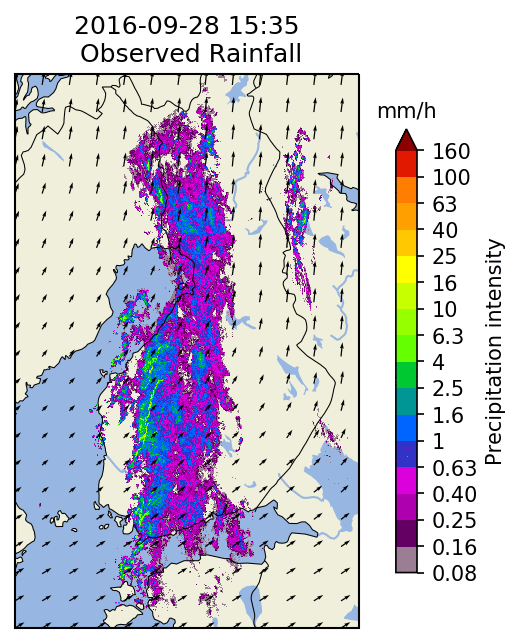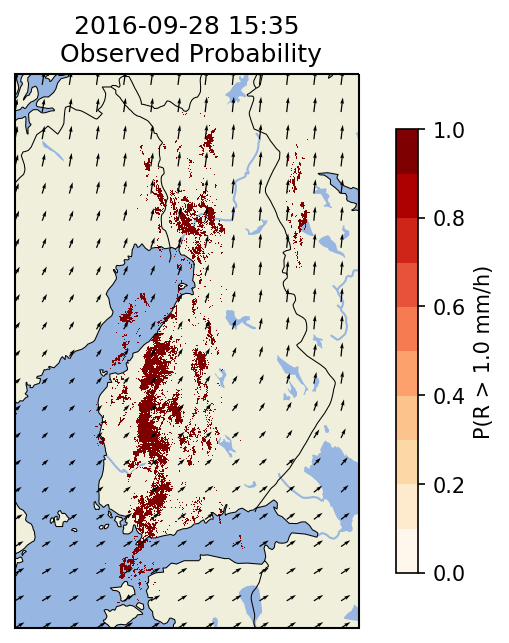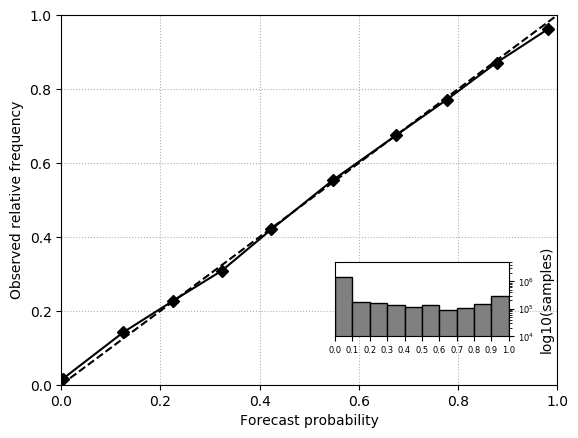The pySTEPS initiative is a community that develops and maintains an easy to use, modular, free and open-source python framework for short-term ensemble prediction systems.
The focus is on probabilistic nowcasting of radar precipitation fields, but pySTEPS is designed to allow a wider range of uses.
You can find the pysteps package on github.com: https://github.com/pySTEPS/pysteps. Also checkout this overview poster.
Documentation
The pysteps documentation is available on Read the Docs
https://pysteps.readthedocs.io
This also includes a gallery of tutorials and the reference guide for all modules and functions available in pysteps.
Quick-start guide
The easiest way to install pysteps is through conda. To install the pysteps package in an existing conda environment:
conda install -c conda-forge pysteps
Please refer to the pysteps installation guide for more detailed installation instructions.
Get in touch
We encourage you to open Issues via our GitHub page.
ERAD2020 short-course
A second edition of our nowcasting workshop will take place at ERAD2020 in Locarno, Switzerland, on Aug 30th! Registration are already open, book your place and find more info here.
Important update: The 11th ERAD is postponed to 2022, see the official communication from the organizers here. The pysteps short course is consequently cancelled.
ERAD2018 short-course
Our first workshop using pysteps took place during ERAD2018 in Ede-Wageningen, NL, on 1 July 2018. With over 30 participants, this was a very successful workshop! We would like to thank all the participants for their enthusiasm and commitment!
The short-course description and training material are available on the ERAD2018 website (search for short-course 4: Radar-based Ensemble Precipitation Nowcasting).
Benchmarking machine learning with pysteps
If you intend to use pysteps as benchmark for comparing machine learning-based nowcasts, it is very important to select the most appropriate nowcasting and verification method from the pysteps library.
The guidelines for such comparison are given in the documentation here.
Gallery

One stochastic ensemble member produced by pysteps starting from the radar composite image from the Finnish Meteorological Institute (FMI).

Probability to exceed 1.0 mm/h derived from a 20-member ensemble nowcast for the above FMI example.

The reliability diagram for 0.1 mm/h threshold and a +60 minute ensemble nowcast with 20 members computed for the above FMI example.
Reference publications
Pulkkinen, S., D. Nerini, A. Perez Hortal, C. Velasco-Forero, U. Germann, A. Seed, and L. Foresti, 2019: Pysteps: an open-source Python library for probabilistic precipitation nowcasting (v1.0). Geosci. Model Dev., 12 (10), 4185–4219. doi:10.5194/gmd-12-4185-2019.
Pulkkinen, S., D. Nerini, A. Perez Hortal, C. Velasco-Forero, U. Germann, A. Seed, and L. Foresti, 2019: pysteps - a Community-Driven Open-Source Library for Precipitation Nowcasting. Poster presented at the 3rd European Nowcasting Conference, Madrid, ES. doi: 10.13140/RG.2.2.31368.67840.



